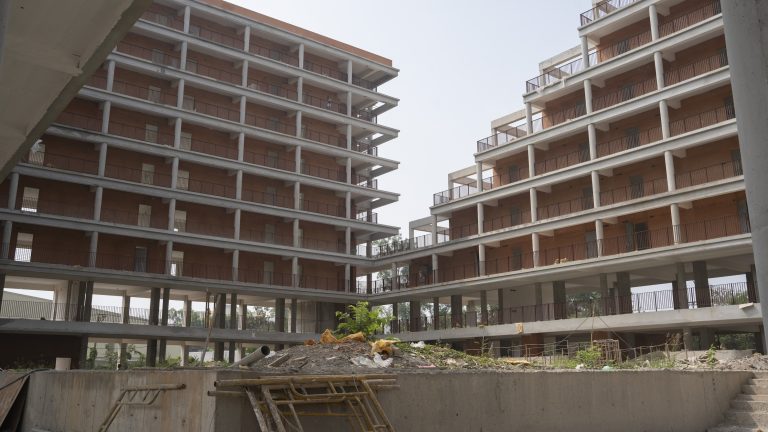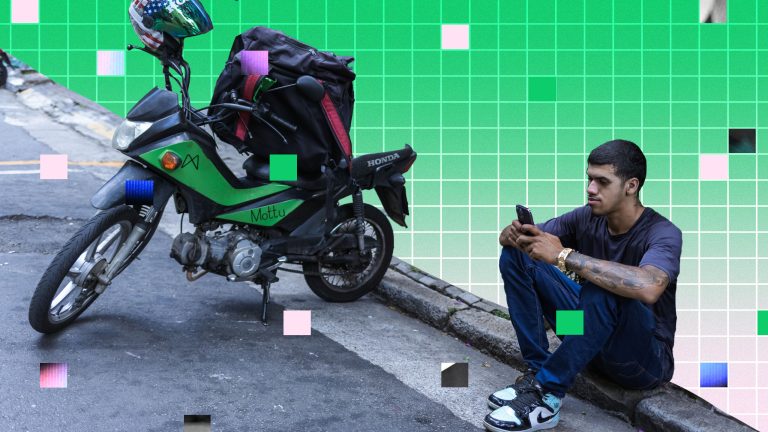A thousand acres of free land, concessions on corporate taxes, and assurances of cheaper production costs than China. That’s how India’s federal and state governments rolled out a red carpet for American electric vehicles (EV) maker Tesla in 2021. The hope was that the local manufacturing of EVs, batteries, and other components would stimulate the economy, create jobs, and help curb pollution in major cities.
While Tesla has yet to officially commit to any investments in India, this is just one example of how South Asian countries, including Pakistan, Nepal, and Bangladesh, have been working hard to boost their private EV industries in recent years. Experts, however, believe these efforts may be focusing disproportionately on the financial gains of building a private vehicle EV industry while ignoring the environmental benefits of EVs in public transport — something that the region desperately needs.
“Buses are ten times more efficient than cars that typically have a single occupant. [But] cars get priority over buses,” Shreya Gadepalli, a sustainable urban mobility expert and managing trustee at the Urban Works Institute in Chennai, India, told Rest of World. “Governments believe that car manufacturing is good for the economy. They miss to see the adverse impact cars have.” More cars, even if they are electric, will increase traffic congestion and road accidents, which are already a serious problem across South Asia.
In India, there are only 22 cars for every 1,000 people. In Nepal, there are fewer than 10 cars for every 1,000 citizens, while the number is around 66 for motorcycles. In the U.S. and the U.K., by comparison, these figures stand at 980 and 850, respectively.
Public transport, meanwhile, is a major source of pollution across South Asia. Around 60% of air pollution in Nepal’s capital Kathmandu is related to traffic, most of which comes from public transport vehicles. About 84% of diesel buses in Dhaka, Bangladesh’s capital, don’t meet national emission standards. The governments in both these countries see the adoption of EVs as an important step towards fighting air pollution, but they don’t have any plans to electrify public transport beyond small-scale pilot projects.
Pakistan and Nepal have also been providing tax incentives to private vehicle owners who want to switch to EVs. In Nepal, the government recently offered a 25-80% tax reduction on EVs. “The tax incentives the government provides on private electric vehicles have made their prices comparable to fossil fuel cars. But even with the tax incentives provided on [the] import of electric buses, the price of the electric buses are still higher compared to their diesel-run counterparts,” Kathmandu-based transport and traffic expert Ashish Gajurel told Rest of World.
Pakistan, which aims to put half a million electric motorcycles and rickshaws, and 100,000 electric cars, vans, and small trucks on the road by 2025, has not included e-buses in its plans.
One reason for this could be the fact that motorcycles are big business in the country and a large amount of investment has been made on their import and sales. So, any move towards electrification of buses or improvement in public transport jeopardizes the business, said Haroon Rashid, Pakistan-based managing editor and car reviewer at Independent Urdu. “I don’t see a genuine push towards electric vehicles in Pakistan. The commitment is not there,” Rashid said.
“Switching to electric cars without addressing the issue of mobility for all is a recipe for disaster.”
A major deterrent to EV adoption in public transportation is the bus cartel systems in several South Asia countries.
In Bangladesh, for instance, there is a complex system of running public buses, which makes it difficult to switch to electric, said Musleh Uddin Hasan, professor at Bangladesh University of Engineering and Technology’s Department of Urban and Regional Planning. “Under the route permit system, the government issues route permits to cartels who then sell them off to private investors. This means that they want to squeeze every penny out of the bus, and don’t want to invest much,” he said. “That’s the reason most buses are not maintained well and cause a lot of pollution in towns and cities across Bangladesh.”
Cities across Nepal also face a similar situation where public transport is run by cartels that prioritize profits over the environment. While officials say taxes have been reduced on private vehicles to decrease pollution, government policies don’t facilitate the transition of public transport vehicles into electric ones.
The governments in these countries have done little to educate private bus operators about the environmental benefits of EVs, so they either continue to be unaware of the new technology or are hesitant to take the risk. “I think the government should establish its own transport company and import electric buses for it,” Gajurel said.
Gadepalli, who rides her bicycle for most daily trips and buses for longer trips, believes governments in India and South Asia should formulate mobility plans that incorporate the needs of all. Electric mobility can then become a part of the wider plan.
“Switching to electric cars without addressing the issue of mobility for all is a recipe for disaster. If a fossil fuel car is a can of Coke, an electric car is like a Diet Coke. It’s like choosing between the lesser of the two evils,” she said.



